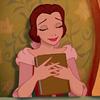Take a photo of a barcode or cover
challenging
dark
emotional
inspiring
fast-paced
Strong character development:
Yes
Loveable characters:
Yes
Diverse cast of characters:
No
Flaws of characters a main focus:
Yes
Three audio books later the puzzle is done! Last book was a bit confusing at first with the multiple plot lines, but they came together wonderfully. Faroese explorers mixed with tightening of American abortion laws (the pink wall with Canada)...a great story of what women are, can be and are often relegated to. .
"The sea does not ask permission or wait for instruction. It doesn’t suffer from not knowing what on earth, exactly, it is meant to do."
"The sea does not ask permission or wait for instruction. It doesn’t suffer from not knowing what on earth, exactly, it is meant to do."
When I recently heard that Leni Zumas’ new novel “Red Clocks” was partly inspired by Virginia Woolf’s “The Waves” I felt I had to read it. I love Woolf’s poetically-charged novel so much and it’s lived with me for so many years I feel like it’s a part of my body and soul. The plot of Zumas’ novel doesn’t directly relate to Woolf’s writing but it gives several nods to it and pays tribute to her predecessor so part of the great pleasure of reading this book was knowing I was in the company of a fellow Woolf lover. The epigraph of this novel is a line from Woolf’s “To the Lighthouse”. Set on the western US coast it portrays the interweaving lives of four different women in a time when abortion is outlawed in America and legislation is coming into place that requires any child who is adopted to have two parents. Sadly, it’s easy to imagine such regressive laws being put into effect with the current administration. Chapters are headed by a part that these four different women play in the story: the biographer, the mender, the daughter and the wife. So the novel is partly about the way that women can become defined by their roles in life and how society brackets women within a specific function. Of course, their characters are really much more complex than these parts and the story dramatically shows the way women can work together under a political regime that seeks to suppress and control them.
Read my full review of Red Clocks by Leni Zumas on LonesomeReader
Read my full review of Red Clocks by Leni Zumas on LonesomeReader
Incredible and timely- a book about the terror that’s gripping us all regarding abortion rights that manages to be sincere but hopeful in the same breath.
We cannot. Will not. Shall not go back.
We cannot. Will not. Shall not go back.
I had high hopes for this book which tells the stories of four women living in futuristic America, where abortions are illegal, as is travelling to Canada to acquire one, as is IVF - since the embryo can't consent to the transfer. Interspersed with their stories is that of a lesser know female explorer. The future Dumas paints is all too believable and the matter of fact way it is portrayed makes is more so. I found the writing style choppy and this combined with the short chapters made it hard to connect with the characters and the story. While I understand the reason for Either being included I felt her story didn't really belong and distracted from the main narrative. Overall this one didn't really engage me in the way I expected and hoped..
This book is extremely scary, given the funding that's just been pulled from Planned Parenthood this week. It describes a future where women's reproductive rights are limited; no abortions, no adoptions except by two parent families, no IVF. I was a little worried the author was going to make a pro-life statement at one point; it seemed to be moving in the direction that "all babies are wanted by someone", but I think ultimately the book just paints a picture of a future where women don't get to choose if they do / don't want children. The mother's storyline wasn't as strong to me, since she isn't really affected by the new world order. Her story could have happened today, or 10 years ago. Not sure why it was included, except maybe to point out the hypocrisy of a woman being able to make a choice to be a single mother after the fact, whereas a single mother can't adopt.
I liked this quite a lot--overlapping stories of women at different points in their lives, with different relationships and attitudes towards pregnancy and parenthood. It was less predictable than I anticipated, and the characters were interesting and complex. But does everything involving women's fertility have to have "Red" in the title?
I'm not sure how I felt about this book. I liked it but I didn't love it. That being said I did like all the characters and how they were intertwined. I really liked Susan because she wasn't the normal mother and she realizes she's miserable with her life. Probably wouldn't read the book again but it wasn't horrible.
Interwoven storylines of several women living in a near future with severely restricted reproductive rights.







